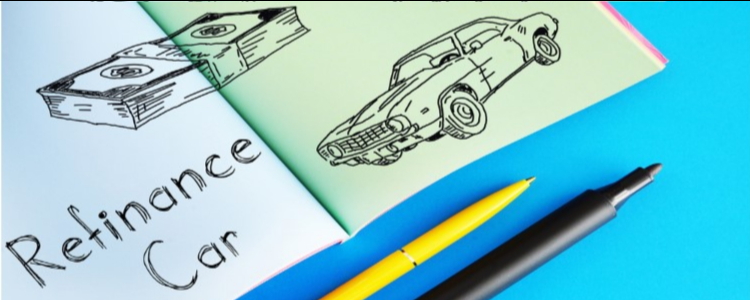If you want to change your car loan terms, such as your interest rate, you’re going to have to refinance. Lowering your car payment is one of the main reasons many borrowers choose to refinance an auto loan, but a lower payment doesn't necessarily equal a lower interest rate.
If you can’t refinance, though, there are ways to lower your interest charges on an existing auto loan. Here's a look at how you could get a lower monthly payment, and save overall on interest charges.
Ways to Lower Your Car Loan Interest Rate
If you want to lower your car loan’s interest rate, refinancing is likely to be your best option once you already have a loan. If you originally qualified for a higher interest rate than you wanted, waiting until you can refinance is typically what you need to do to lower your interest rate.
Refinancing is replacing your current loan with a new one, usually with different and more pleasing terms. In other words, the remaining balance of your auto loan is reworked into a new contract.
When borrowers refinance, they usually do it to lower their monthly payments or lower their interest rates. If you originally took out a bad credit car loan and want to lower your interest rate to save money in the long run, you may be able to qualify for refinancing – if your credit score has improved since the start of your loan, that is.

You don’t have to refinance to save some money on interest charges, though. Auto loans are typically simple interest loans, which means you’re charged interest daily on what you owe. This means that after each payment, there’s less to be charged interest on. The faster you pay off the vehicle, the less interest you’re charged.
- Try making some lump sum payments to lower your loan balance and decrease the amount you’re charged interest on.
- You can practice payment splitting, and pay half your payment at the beginning of the month, and half your payment when it's due.
- You could also pay a little extra each month when you can.
- Or, you can make extra car payments whenever you’re able to.
Anything you can do to lower your auto loan balance more quickly helps lower the interest charges.
If you’re about to take out a car loan, and you don’t have the best credit, you can be proactive. A way to mitigate the amount of interest you’re going to be charged is to prepare a sizable down payment and opt for the shortest loan term you can afford. Bad credit and long loan terms can spell lots of interest charges – and often long loan terms mean paying way more than the vehicle is worth!
When Does Refinancing Make Sense?
Refinancing makes sense when you need to lower your car payment. This is typically why people refinance.
With refinancing, you typically have two options. You can either lower your interest rate or lengthen your loan. A lower interest rate saves you money throughout your auto loan term and lowers your monthly payment. Lengthening your car loan lowers your monthly payment, but it costs you more in the long run.
Sometimes, you can do both, but you need to crunch some numbers to see if you're saving money overall or not.
Imagine you financed around $30,000 for a vehicle with a not-so-great credit score, and qualified for a 13% interest rate. If you still owe $15,000 and have 36 months left to pay your monthly payment is $505.41 each month. There are two ways you could go, lower interest, or longer term.
If you refinance and qualify for a lower interest rate, say 9% APR, your monthly payment drops to $477.00 a month, and you're saving $1,023 in interest charges, due to the lower rate.
If you need your monthly payment to drop but don't qualify for a lower APR you could try to refinance to a longer loan term. If you refinance this loan for 48 months, your car payment drops to $402.41. Without lowering your rate though, you're adding $1,121 in additional interest charges, due to the longer time it takes to repay your loan.
Refinancing only makes sense when you can qualify for a lower rate if you need to save money overall.
Ready for Your Next Vehicle?
If you’re getting ready to apply for an auto loan, try to improve your credit score as much as you can. Your credit is a major factor in what interest rate you’re going to qualify for. Additionally, a large down payment may be able to get you into a lower interest rate, too, since the loan amount is going to be smaller with a big down payment.
Another way for bad credit borrowers to improve their chances of getting a lower interest rate is by having a cosigner. Cosigners lend you their good credit to help you qualify for a car loan, and possibly a lower interest rate than if you were to apply by yourself.
If you don’t think refinancing your current auto loan is your next step, then perhaps trading in your vehicle for something more affordable could be for you. Even if your car doesn’t quite qualify for refinancing, if your credit score is good or better than it was when you took out the auto loan, you may be able to get into another car loan with better rates now.


















